The Knitting Circle Read online
Page 18
But Alice saw through her. She squeezed her hand and whispered, “If you ever need to talk.”
Mary nodded again, felt Alice waiting beside her, but she didn’t look up again until she heard the soft shuffle of her slippered footsteps walking away. She could not tell anyone that Dylan had moved out, that she was left with nothing.
The yarn needed to be rolled into balls. Mary took it into another room and sat there alone, mindlessly winding it. From somewhere she heard voices, the clatter of dishes. Beth’s house, in a subdivision not far from Harriet’s, was an ordinary center-hall colonial: white with black shutters, a brambly wreath dotted with orange berries hanging on the front door. Nothing at all special. Mary took some comfort in this, the dullness of Beth’s surroundings.
The dining room, where the yarn spilled across a glass-topped table, had straight-backed chairs covered in white fabric, tied with bows at each side, as if Beth had dressed the chairs in dinner jackets.
“Beth made these,” Harriet had beamed.
Mary had to stifle a comment. No shit, she thought. They looked homemade, someone’s idea of sophistication.
The family room where she sat now had a fireplace made of brick with a short wooden mantel crowded with pictures that Mary avoided looking at. The room itself was overflowing with toys that had been shoved into corners and plastic bins, a hasty effort at order. Mary sat on a green and white plaid couch, its slipcovers probably also hand-sewn by Beth, like the striped ones on both easy chairs. On the coffee table, magazines stood in neat piles. A small dish of candy corn and a remote control dressed in a green knit cover were placed at perfect angles to each other.
Behind her, Mary could make out Harriet’s low voice. She thought of Harriet’s son and his wife, the careful control with which Harriet lived her life. Beth was the only one who still remained a blank to Mary. Perhaps this was by design, on both their parts. Mary had no desire to hear about Beth’s homemade life, her daughter Stella, the best way to bake a pie or sew a hem. And she had no desire to tell Beth—or anyone—anything about her own pathetic life.
Mary picked up her yarn, put the two still-unrolled skeins in her bag, and followed the rise and fall of the women’s voices to the living room across the front hall.
Past the polished wood of the banister and the small table where mail and keys and telephone directories all lived in their own clearly marked boxes, Mary entered the living room last. Everyone was already seated and beginning to cast on. She glanced at the colors snaking up each number nine needle: calypso and juniper, bramble and mist, autumn and jade. A rainbow of yarn.
Beth took up most of the pale blue velvet sofa, where she half lay, half sat beneath a dark green fleece blanket. At her feet, wedged into the corner at the opposite end of the couch, was Harriet. They were meeting here because Beth wasn’t feeling well. Under the weather, Alice had said on the phone.
Mary took a seat on the ivory carpet and began to cast on.
“Fifty-two stitches,” Alice reminded her.
“How are you feeling?” Mary asked her.
“Not so great really,” Beth said.
Mary looked up from her knitting, surprised. Of course, Beth was already ahead of everyone else. Her block was a good six inches long, the pattern already revealing itself with small puckers of pink squares alternating with soft valleys between them.
Harriet tsked. “She’ll be just fine,” she said. She didn’t look up. Instead, she kept knitting, her lips silently shaping the stitches: purl, purl, knit, knit, purl, purl, knit, knit.
“CANCER,” LULU SAID in the car as they drove back to Providence.
“What?” Mary said from the backseat. She leaned as far forward as her seat belt would allow. “Beth has cancer?”
“When I first started going to the knitting circle,” Scarlet said, “she had just gotten a clean bill of health. Alice taught her to knit when she was undergoing chemo the first time.”
Mary swallowed hard. “You mean this is a recurrence?”
Lulu twisted around to face Mary. “She’s probably going to die,” she said.
“Lulu!” Scarlet scolded. “Don’t catastrophize.”
“What?” Lulu said. “You think bad things don’t happen? You think mothers with four little kids don’t die?”
“God,” Scarlet said, “I need a cigarette.”
Lulu looked back at Mary again. “Breast cancer. Metastasized.”
Mary’s hand flew to her mouth, as if to keep something back.
“She’s had what? Four good years?” Lulu said, settling back in her seat.
Scarlet rummaged in her bag and pulled out a pack of cigarettes.
“Now you’re going to get cancer,” Lulu said.
“Stop!” Scarlet told her.
The lighter made a small popping sound. Mary watched the soft red glow at its tip as Scarlet moved it to the cigarette dangling from her lips. She inhaled luxuriously.
“We’re all going to get cancer,” Lulu muttered.
Mary sat back and watched the blur of headlights as they sped down the highway.
“Every one of us,” Lulu said.
MARY WAS SURPRISED when she saw Beth, bald beneath a red chenille knitted hat. Beth’s cheeks were a surprisingly healthy pink, and Mary thought for a foolish instant that maybe she had been cured. Beneath the smell of furniture wax and banana bread lingered the sour smell of vomit.
“She looks good, doesn’t she?” Harriet said cheerfully, squeezing Beth’s face tenderly. She placed a cup of weak tea on the coffee table.
The house was dressed for Christmas. A jolly Santa on the lawn. A fat wreath with a red velvet bow on the front door. Inside, poinsettias on tabletops and candles in every window glowing white. A Christmas tree in the room where they gathered stood ceiling high, a gold star glistening at the very top, and white ornaments on every bough.
“She does another tree for the kids,” Harriet beamed. “In their playroom. That one has crazy stuff on it. Trains that chug and balls that play music and reindeer that spin.”
“This year—” Beth began.
“This year you supervised,” Harriet said, waving her hand dismissively.
Beth smiled, but it seemed to take all her energy to do it.
Alice cleared her throat. “Block two,” she said. “Everyone, I assume, finished block one?”
She passed around a finished square so they could see the pattern. “It’s a zigzag,” she said. “Same bottom border. Knit six rows. Then it gets complicated.”
Mary wrote down the pattern as Alice spoke:
Row 1: K8, (p3, k3) 7 times, k2.
Rows 2, 4, 6, 8—
“Who do we appreciate?” Lulu cheered.
Alice rolled her eyes. “There’s always one wise guy.”
“And it’s always Lulu,” Scarlet chuckled.
Rows 2, 4, 6, 8, 10, and 12: K3, p46, k3.
Row 3: K7, (p3, k3) 7 times, k3…
Mary glanced around the room, grateful to be here, in the company of these women, just knitting. Her eyes moved from Alice to Scarlet to Lulu. Ellen was not here tonight. Instead she was with Bridget, both of them waiting for that call to come with a new heart. She settled her gaze on Harriet, who was ignoring Alice’s instructions and knitting away furiously. Then Mary looked over at Beth, who probably had already finished her zigzag and was on her way to spiderweb or dashes.
To her surprise, Beth was sound asleep. Her mouth slightly open, her knitting resting on her chest.
“And finally,” Alice was saying, “the top border is only five rows.”
Somewhere, Dylan was with happy Denise doing happy things. Mary imagined a large golden dog. A garden in bloom. She imagined them blissfully groping each other.
“Mary?” Scarlet said.
Mary saw that they were all looking at her.
Scarlet pointed to Mary’s knitting, which had fallen completely off one needle, her square unraveling in her hands.
The thing about knitting, Mary tho
ught, was when it fell apart, it was easy to fix.
“Need help?” Alice asked.
Yes! Mary screamed in her head. I need a life raft. A lifeline. I need my life back.
But she said, “I’m good. Thanks.” Carefully she picked up her knitting, and began the slow process of slipping her stitches back on the needle.
IN MEXICO AT Christmas a statue of the Virgin is paraded through the town. Villagers dress like wise men; children dress like Jesus. There is a bazaar so large and full, it takes days to visit all the sellers’ booths. Nativity figures can be had for a few pesos. Tamales are sold steaming from carts in the streets.
Mary’s mother told her they would do all of that and more. Why, she said, if you’d like, we can even fly to Puerto Vallarta. Rent a car and drive on to Sayulita, where the beaches are perfect moons of sand and clear blue water.
“I want to be home for Christmas,” Mary had told her, and even as her mother continued talking, trying to convince her that this trip would be good for her, Mary had realized how truly sad it was that she would rather spend Christmas alone than with her own mother.
In the attic sat boxes, red with green lids, and inside those boxes were Christmas stockings, Dylan, Mary, and Stella written in silver glitter across their tops. There was a Santa who danced to “Rockin’ Around the Christmas Tree” and a Nativity set her mother had sent them from Mexico on which Stella had colored over all the painted figures in red marker.
At the Christmas party at the office, Holly wore a Santa’s hat and earrings that blinked on and off like Christmas lights. Eddie and Jessica wore matching accessories: Eddie a bow tie with martini glasses and olives, Jessica a matching scarf. He kept his arm around her waist and spoke into her ear, conspiratorially.
Mary left the party, got in her car, and drove out of town. She was still dressed in her red miniskirt, her black hose with candy canes climbing up her calves, and her holiday high heels. On the seat beside her was her Secret Santa gift, a rubbery fish that lifted its head off its mounting and sang, “Don’t worry, be happy.”
Four hours later, she was somewhere in Maine, on the ocean Route 1. She was tired. It was nine o’clock and she’d only eaten two Christmas cookies all day. A rambling white B and B appeared around the next corner, and Mary pulled into its driveway and parked.
Inside it smelled like cinnamon and evergreen. The place was hushed, low-lit. She could hear a piano. She could hear the crashing of waves. It was Christmas Eve, and Mary could see that families and couples in love were all gathered here.
She would have walked out, but a woman appeared dressed in a red plaid ankle-length skirt and a big Christmas tree brooch. Her gray hair was tied into two braids, like Mrs. Claus. Mary smiled to herself, and asked if they had a room.
“You alone?” the woman asked in a flat Maine accent, narrowing her eyes.
Mary nodded.
The woman glanced around the small overheated room.
“No luggage?”
Mary shook her head.
“Well,” the woman said finally, “we’ve got a room all right. The dining room’s closed but we could probably find you a turkey sandwich or some such thing.”
“That sounds fine,” Mary said.
She followed the woman into another overheated room. There was a long wooden bar and red stools. The bartender stood, looking bored. The Christmas music was louder here.
“Get Miss…” The woman raised her eyebrows at Mary.
“Mary.”
“Get Miss Mary here something to eat. And a glass of wine.” She raised her eyebrows again.
“That would be great,” Mary said. She sat on one of the stools, relieved to slip off her high heels.
The woman touched her shoulder gently. “Merry Christmas then,” she said.
“You too,” Mary said.
The bartender brought her a thick turkey sandwich with cranberry sauce and stuffing in it. He poured her a big glass of chardonnay, then stepped back and watched her eat.
When she pushed the plate away, he said, “Alone on Christmas Eve?”
Mary sipped her wine.
He refilled her glass, poured himself one, and left the bottle on the bar.
“There’s only three reasons a person is alone on Christmas,” he said.
She looked at him, waiting. He was handsome, she realized. Longish sandy hair, a stubbled face, broad shoulders.
“Thrown out,” he said, holding up his fingers to count off the reasons. “Lost. Or running away.”
She almost said, Lost.
“Running away,” she said.
“From a jealous husband?”
“Hardly,” Mary laughed. Dylan had called her to talk about Christmas. He had said he would be away over the holiday. Could you be a little vaguer? she’d asked him before she hung up.
“What then?”
“Ghosts,” she told him.
“Ah then,” he said, “we have something in common.” He stuck out his hand. “I’m Connor.”
They didn’t say any more about it then. Instead, he came and sat beside her and they talked about the safe things that strangers discuss: snowfall amounts and recent movies and what a person liked in a bottle of wine. They drank that bottle, and before it was finished Mary heard herself flirting with this man whose knee pressed against hers gently. His smile was easy to like. In another lifetime, she had been a woman who might meet a man like this, in a bar, and talk of nothing with him while something built up between them. She had been a woman who might go home with a stranger, who would take pleasure in a man’s large hands running along her body, a tongue on her breast, the newness of lips kissing her for the first time.
Connor pointed to the large window behind her, and she turned to see lacy snowflakes falling outside it.
“Let’s go and catch some on our tongues,” he said, taking her hand and leading her out. They stopped to put on coats, and he took a long scarf from a peg and wrapped it several times around her neck.
“You’re in Maine, you know,” he said. “Got to bundle up.”
Then he tugged on the two ends, pulling her toward him. When they started to kiss, Mary felt all the sad things melt away. For an instant, she thought about Dylan, and wondered if this was why he had left her. For such moments when it was easy to forget.
They kissed and kissed like that, until Connor was unraveling the scarf now, pulling it and her coat and hat off. Mary did the same, removing all of the outer layers he had so carefully buttoned and tied a moment ago. The Christmas music had stopped, and the only sounds were the fire crackling and their breathing, hard and fast, as they continued undressing each other, her skirt hiked up high, his shirt and pants open now. Mary reaching for him desperately.
When he entered her, the shock of feeling someone different than Dylan inside her excited her. Perhaps she should feel guilty; the thought drifted across her mind but got lost in the passion between her and this man she didn’t know. For this brief time, nothing mattered except the two of them on this worn Oriental rug in this inn in Maine.
When it was over, he propped himself on both elbows, looking down at her with that easy smile of his.
“Whatever it was that sent you out on Christmas Eve,” he said, “I’m glad it sent you my way.”
“I haven’t done something like this in…” She laughed.
Slowly, he eased out of her, and kissed her full on the mouth.
“I’m taking you home with me,” he said.
“You don’t even know me,” Mary told him.
Connor pulled her to her feet, and slowly began to put her back together, until once again he was tying the scarf around her neck, and tugging her toward him to kiss.
“I’m damaged goods,” she said.
He laughed. “Who isn’t?” He nodded toward the window.
“Snow already stopped. Let’s go and make snow angels.”
LATER, SITTING ON a blanket in the snowy field beyond the inn, the ocean pounding behind them, Connor ask
ed her what those ghosts were. “Or who,” he added.
“My daughter died,” she said. She rarely spoke those words, and she shivered when she said them. “She was five.”
His arm was already draped around her shoulders, but now he pulled her even closer. His down jacket was cold against her cheek. It was so black out, the streetlights so distant, that Mary could believe they were the only two people in the world right then.
“I came here,” Connor said, “from Boston, after my wife died. I used to work in television news. A reporter. You know, the guy who stands outside in the middle of hurricanes. Now I tend bar in Maine.”
Mary nodded into his chest.
“We never had kids,” he said. “I can only imagine.”
Clouds obliterated the moon and the stars, drifting in a milky dance across the black sky. When Connor bent to kiss her, Mary lifted her face to meet his. He could be anyone. They could be anywhere. It was as if she were floating in space, untethered.
MARY STAYED. SHE never even went upstairs to the room at the inn. Instead, she followed Connor’s old yellow Jeep down icy curving roads to his apartment on the second floor of an old Victorian facing the ocean. The radiators hissed and creaked. The windows shuddered against the wind. She lay naked beneath layers of blankets with this man she did not know, as if she were trying on a new identity. Or finding an old one.
They didn’t speak of their losses again. Instead, they just brought comfort to each other with their bodies. Once, so long ago it was just a whisper to her, Mary remembered doing this with Dylan—the long days in bed, their bodies sore as they explored each other. Connor made them instant soup in chipped diner mugs. He told her funny stories about working as a reporter. He played the banjo for her, and sang songs she had never heard before. They took baths together in his old claw-foot tub, Mary soaping up Connor’s husky body, her hands learning someone new.
One night he rolled a fat joint and for the first time since college she got so stoned she had giggling fits that wouldn’t end. To laugh, even with the help of that strong pot he said he’d brought back from Hawaii, felt so good Mary thought she might die from the feeling.

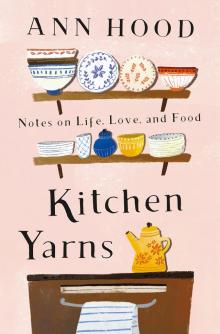 Kitchen Yarns
Kitchen Yarns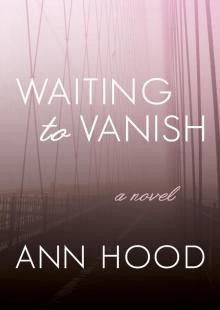 Waiting to Vanish
Waiting to Vanish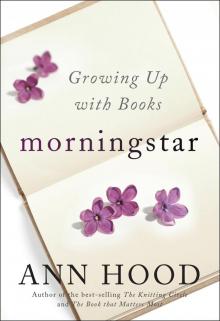 Morningstar
Morningstar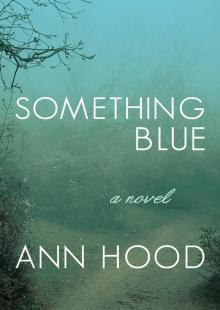 Something Blue
Something Blue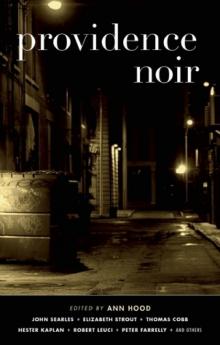 Providence Noir
Providence Noir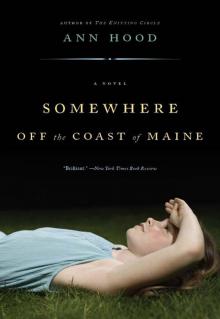 Somewhere Off the Coast of Maine
Somewhere Off the Coast of Maine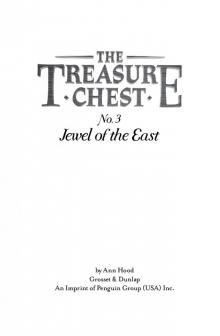 Jewel of the East
Jewel of the East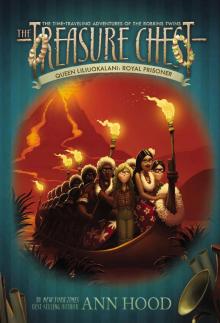 Queen Liliuokalani: Royal Prisoner
Queen Liliuokalani: Royal Prisoner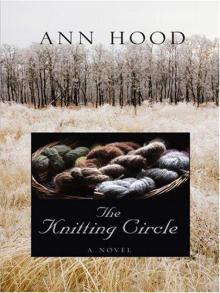 The Knitting Circle
The Knitting Circle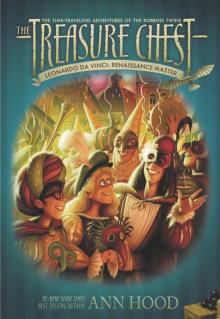 Leonardo da Vinci: Renaissance Master
Leonardo da Vinci: Renaissance Master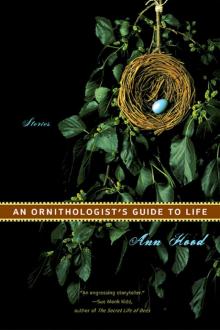 An Ornithologist's Guide to Life
An Ornithologist's Guide to Life The Red Thread
The Red Thread She Loves You (Yeah, Yeah, Yeah)
She Loves You (Yeah, Yeah, Yeah)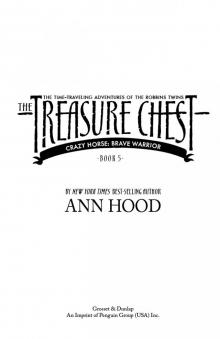 Brave Warrior
Brave Warrior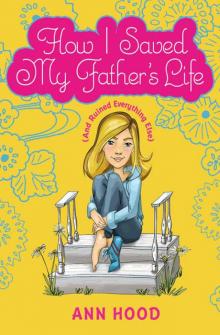 How I Saved My Father's Life (and Ruined Everything Else)
How I Saved My Father's Life (and Ruined Everything Else)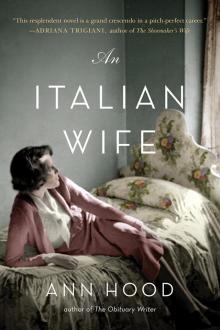 An Italian Wife
An Italian Wife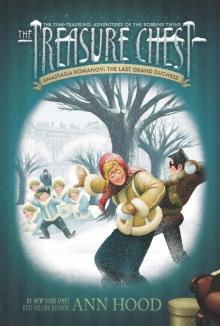 Anastasia Romanov: The Last Grand Duchess #10
Anastasia Romanov: The Last Grand Duchess #10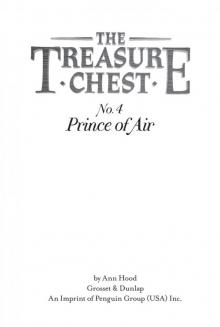 Prince of Air
Prince of Air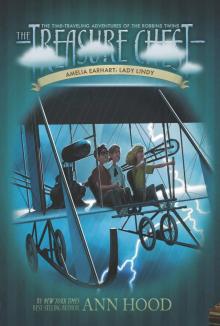 Amelia Earhart: Lady Lindy
Amelia Earhart: Lady Lindy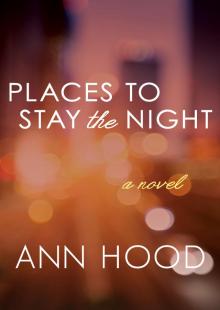 Places to Stay the Night
Places to Stay the Night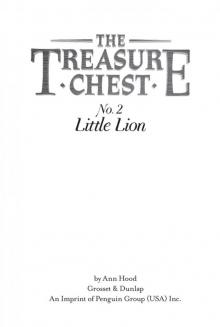 Little Lion
Little Lion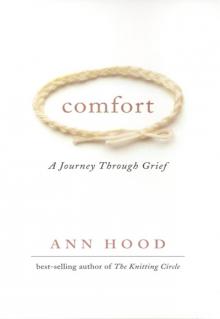 Comfort
Comfort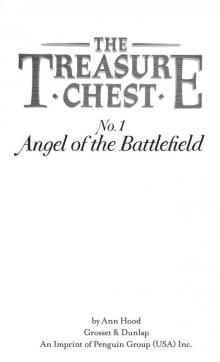 Angel of the Battlefield
Angel of the Battlefield